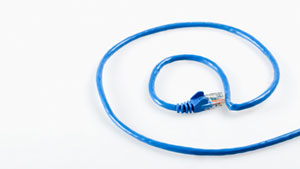
A New Look at USF
[Source: Ars Technica, by Matthew Lasar; April 2, 2010] The Federal Communications Commission's Universal Service Fund is cleaning up its act. Yes way—for real. And not only that, it looks like we've been a tad unkind to the benighted program in the past. Turns out that what seemed like a pretty devastating audit of one of the USF's main programs was way off in its calculations.
The Federal Communications Commission's Universal Service Fund is cleaning up its act. Yes way—for real. And not only that, it looks like we've been a tad unkind to the benighted program in the past. Turns out that what seemed like a pretty devastating audit of one of the USF's main programs was way off in its calculations.
Here's the short version of that story. The USF, paid for by small tithes on your phone bill, runs four programs: a fund that subsidizes the phone bills of the poor; a program that subsidizes the computer/network needs of schools and libraries; another that underwrites broadband for rural health care facilities; and a division that offers financial support to rural carriers.
That last program is called the "high cost" fund. It helps with the challenges that rural carriers face in trying to provide service to relatively few consumers in spread out areas. Unfortunately, past audits of the fund have concluded that its high cost title has a second, less desirable meaning—a scarily huge error rate in payouts to carrier recipients: 16.6 percent, according to a review that the FCC's Inspector General released three years ago. A subsequent assessment warned that the program overpaid carriers by almost a billion dollars from July 2006 through June 2007.
But the Universal Service Administrative Company's new Annual Report includes a re-check of those numbers that calls them way too high. Not 16.6 percent for that first assessment, USAC says, just 2.7 percent. "USAC anticipates similar results in the final reports on the second and third rounds of the FCC OIG USF audit program," the Annual Report also notes.
Big fixups
Still, the document indicates the company has taken to heart many of the criticisms of the ways that it monitors its four programs. In mid-July of 2008 the Government Accountability Office warned that the FCC has not established meaningful performance goals for the USF. But the GAO reviews' most important finding was that nobody really audits the cost records of these telcos for, well, costs. FCC and USF data collection efforts only peer at a small percentage of recipients, GAO charged, and "generally focus on completeness and consistency of carriers' data submissions, but not the accuracy of the data." This could "facilitate excessive program expenditures," the report very politely concluded.
Now, in 2010, USAC will take a new approach, the company promises, "analyzing data from beneficiaries and from USAC to measure rates of improper payments and using a broad audit program to measure program compliance." The FCC has also established an interim cap on high cost fund payments to competitive carriers. And the low income program is completely revamping itself, with a new cost-tracking system to reduce accounting errors.
All this is good news, because the Universal Service Fund could become a huge engine for the expansion of broadband in the United States. Last year the USF paid out $7.3 billion to its recipients—money going out to 1,865 eligible telecommunications carriers in the case of the high cost program. But the balance of that cash went to phone service providers, not to ISPs.
So the FCC's National Broadband Plan recommends that Congress transitions USF money to two new programs. First, a Connect America Fund to support broadband providers for poor and rural regions. The CAF, as outlined in the Plan, is designed to avoid the errors of High Cost. It will only provide funding in zones "where there is no private sector business case to provide broadband and high-quality voice-grade service." The program will give to no more than one provider per area (as opposed to over a dozen in some present instances). Its recipients will be adequately audited. And, of course, they will have to provide broadband.
Second, the FCC wants Congress to launch a "mobility fund" to help various states get up to speed in 3G wireless.
All this could take a while for the House and Senate to get out the door. The FCC says this transition needs to happen by 2020, with reforms of High Cost and disbursements from Connect America both beginning in 2012. But the agency isn't waiting for Capitol Hill to get started. The Commission's next meeting, scheduled for April 21, will propose "common-sense reforms to the existing high-cost support mechanisms to identify funds that can be refocused toward broadband"—plus a Notice of Inquiry that asks for input on "the use of a model to determine efficient and targeted support levels for broadband deployment in high-cost areas."
Let's see how far the USAC and FCC can get on their own while waiting for Congress to take the big steps. Hopefully they won't have to tread water for too long.


